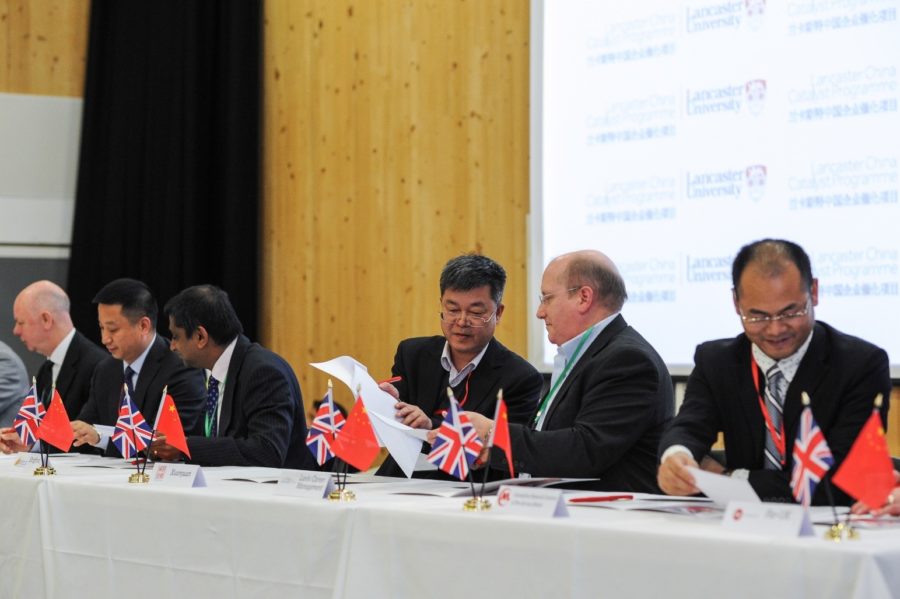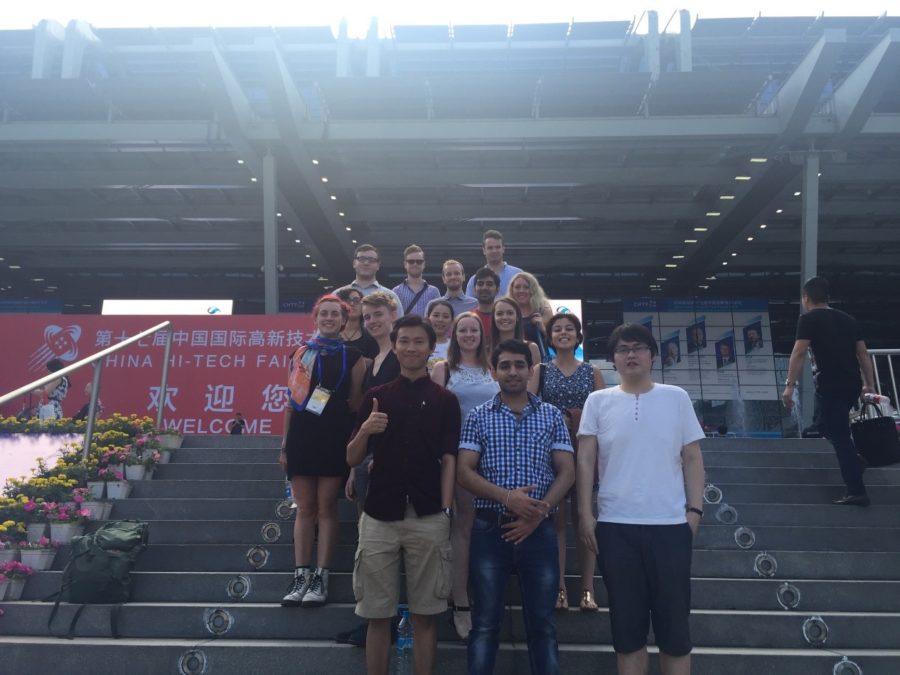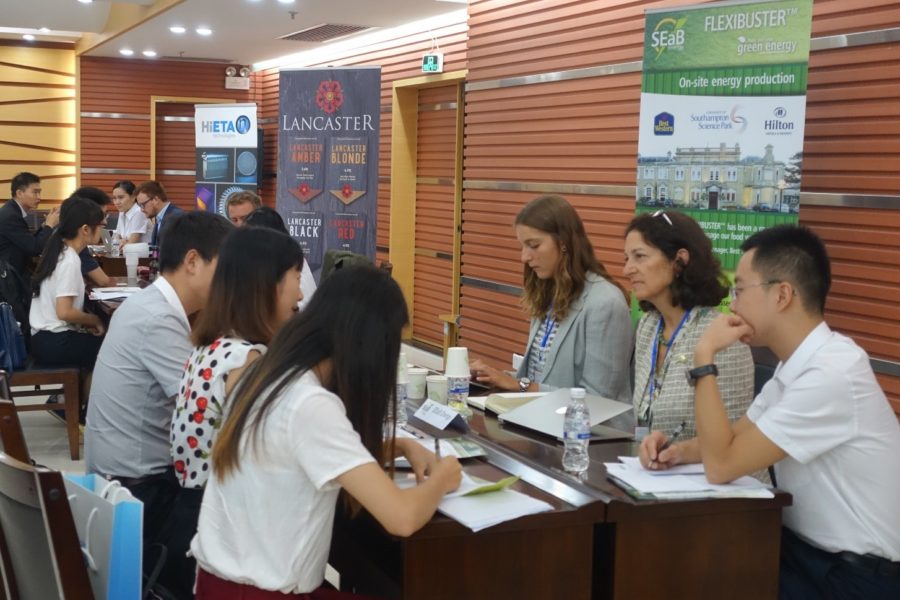30th April 2018
The Lancaster China Catalyst Programme – Fuelling innovation and learning in China

Over the last four years, the Lancaster China Catalyst Programme (LCCP) has been working with SMEs from the UK to establish collaborative research and innovation partnerships with Chinese companies in the Guangzhou area on projects related to the Environment, IT and Engineering. The Programme was established by Lancaster University in response to national interests in the UK and China to forge stronger relationships around technology and innovation, and to provide a platform that would help SMEs to overcome many of the barriers they face in internationalising their businesses.
One such barrier is the ability of an SME to divert valuable resources away from its core business to kickstart a new venture. Through the Programme, talented graduate students from the newly created Masters Degree in International Innovation (M.SC. II) worked in multi-disciplinary teams with the companies on their projects in the UK, and then for 6 months in China, providing them with valuable experience of working on real projects with real partnerships in an international environment, and providing the companies with resources to get the partnerships and their projects off the ground.

To undertake a programme of this size, LCCP has relied on a number of key partnerships with organisations both in the UK and China, and critical to the success of the Programme has been the collaboration with UK government organisations including the FCO-BEIS Science and Innovation Network who helped to establish a strong relationship between the University and the Guangdong Provincial Department of Science and Technology (GDST) that has provided the Programme with access to Chinese companies, and provided the partnerships with access to additional project funding in China. In addition, both the Department of International Trade (DIT) and the China Britain Business Council (CBBC) have provided guidance to UK companies in understanding the business landscape in China and assistance in making connections with support organisations and companies in the region.

During the Programme, more than 60 companies travelled to China to meet with prospective Chinese partners and gain an understanding of doing business in China. Most of these companies were from environmental, engineering, IT, healthcare and the food and drink sectors, and many of these companies established partnerships with Chinese companies. By the end of the Programme in April 2018, 37 projects had been undertaken that were resourced by 88 graduate students from the M.Sc.II who travelled to China and worked on the projects for 6 months. For many of these students, this experience has helped to launch their careers as the next generation of international entrepreneurs and innovators.
LCCP was one of the first Programmes to combine international SME engagement with graduate learning in a foreign country and has helped gain an understanding of the effectiveness that this kind of support can deliver to both companies and students, and what it takes to make this successful. Much of this will provide valuable input into future programmes at the University as it continues to grow its international agenda.
